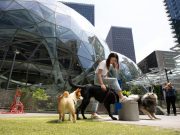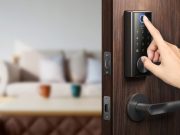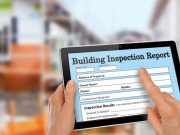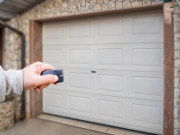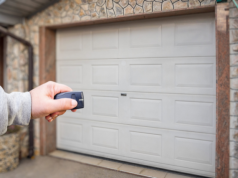Thinking of bringing home a new puppy? Maybe you’ve checked out some Beagle puppies for sale just to look at their soulful little eyes – we know we have. Of course, we want to be able to shower our new furry friends with as much love and affection as we possibly can. There are many factors that have to be considered before you adopt a puppy, as well as challenges that you and the new puppy will have to overcome.
Something that stops many people from having man’s best friend by their side is the fact that all puppies have to be housetrained (or housebroken – we prefer the word “train” because that’s really what you’re doing). Yes, it can sometimes involve sleepless nights and some frustration.
But we know that many puppies can actually learn quite quickly if you set them up for success. In fact, the housetraining process is probably harder on your new pup than on you (despite you having to clean up after them) – after all, they don’t know where they’re supposed to go and every time they do is an anxiety-filled process. Teaching them the proper place to go potty is actually helping them be more comfortable and confident.
So today we’re going to give you our best tips to housetrain your new puppy. It’s not going to make your puppy magically housetrained in days, but rather give you a simple, straightforward process to follow to give your pup the best chance of learning.
The main thing to remember is that your puppy isn’t doing anything in an effort to misbehave – it’s a puppy following its natural urges. Your job is to direct those urges at the right place and time.
Start them young
Ideally, you’ll be bringing home your puppy at around 8 weeks old, which is when puppies need to begin socialisation. This is the perfect time to begin housetraining them, because at this age the puppy can be taught where to go potty before they get used to eliminating in a specific place. So once you bring them home, you need to start the training process right away. But don’t worry if your puppy is older than that, you’ll just need to be a little more patient with them.
If you have the option, it may be even better to take some time off of work so that you can be with your puppy 24/7 for the first week or so. It’s much more difficult to housetrain puppies if they have to be left alone for eight to ten hours out of the day. Plus, this extended time together will help you form a lasting bond with your puppy.
Take them out regularly
And by regularly we mean six to eight times every day (which is why we advise taking some time off work). We find that most puppies will need to go potty immediately after they wake up, after playtime, and around half an hour after meals. If you’re feeding your puppy three times a day, that’s already five times that they’ll need to go out. Of course, you’ll also want to bring them out to potty before they go to sleep at night, so that’s six times in the day, minimum. More active puppies will need more potty trips, as they’ll naturally want to drink more water as they get tired.
The important thing with these trips is to be mindful of the puppy the whole time – many housetraining problems can result when you’re unsure whether or not the puppy has actually eliminated and you let them back in the house. Many puppies will have to sniff around the chosen potty area for around fifteen minutes before they do their business. Remember, they need to focus on learning that this is the correct spot, so try not to distract them until they’re done.
Teach them the right command
This one is easy: all you have to do is consistently use the same word or phrase every time your puppy goes potty in the correct spot. We like the simple and direct “go potty,” but it’s completely up to you. Some people like to use a different language for their command to minimise the chance of the puppy hearing it in normal conversation. That’s really going the extra mile, but it does work!
So long as you use the same word or phrase every time, they’ll learn that the phrase means it’s the right time and place to do their business. Of course, you can’t give this command unless you know for sure that they’ve gone potty, which is why you have to pay close attention.
Reward, reward, reward
Your new puppy looks up to you and wants to please you. This is something that’s true for all puppies and their chosen humans. The best way to make the lesson stick is to show the puppy that they’re doing the right thing. Reward your puppy by praising them and giving them a treat after they’ve gone to potty outside.
Rewards are the fun part of housetraining your puppy, as what every puppy wants as a treat can be different from one puppy to the next. Some puppies like snacks, others love pets and belly rubs. Take the time to find the best reward for your puppy, whatever it is that makes them the happiest. This is especially crucial with dogs that are hard to housebreak, like the Beagle puppies we mentioned earlier.
The important thing is to do it very soon after they do as you ask, so that they associate the reward with the correct act. If you only reward them after they return to the house, they’ll probably think they’re being rewarded for going inside.
Cleanup is critical
Accidents will happen. This is just a fact – some puppies will go potty after getting overexcited, others will just have a smaller bladder, and others will just not want to wait to go outside. It doesn’t mean they’re a bad dog, or that you’re a bad dog parent! But what you do have to do is remove dog pee stains from carpet as soon as you notice them, otherwise your puppy may return and eliminate in the same spot later on.
Stay positive
It can be tiring to have to clean up puppy messes, babysit them throughout the day, and wake up in the middle of the night for potty breaks. We’ve been there too! Puppy blues, as they’re called, are a real thing. But the important thing is that you don’t give up on your puppy. Remember, it’s a puppy, not a problem – they’ll get through this, as will you.
Be consistent, be positive, and reward your puppy when they do the right thing. If you believe that your new puppy will eventually learn, we think they’ll surprise you with how quickly they do it. And soon enough there’ll be no more midnight messes to worry about – and you’ll have a happy, confident puppy who loves and adores you. We think that’s totally worth the effort.







